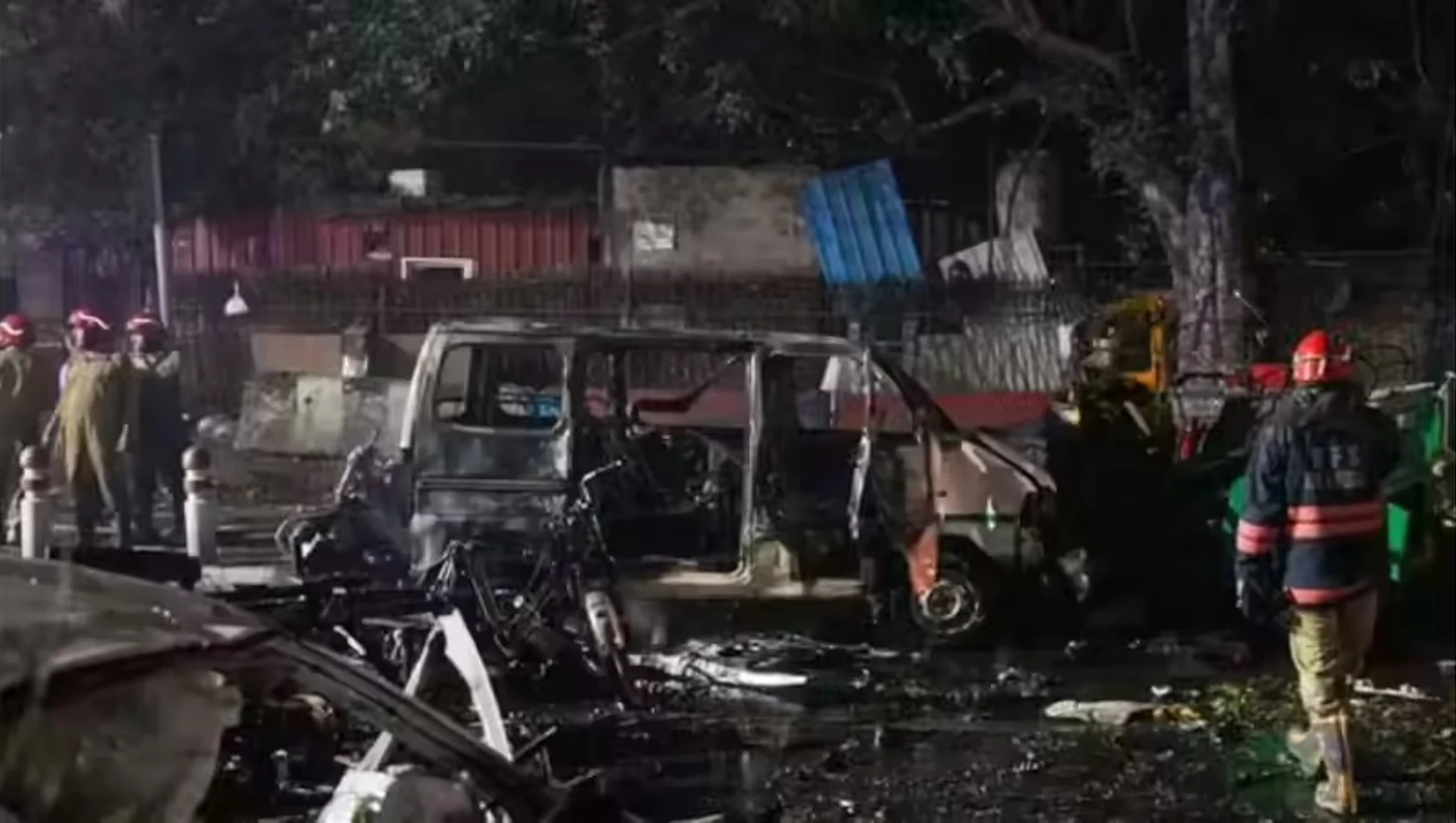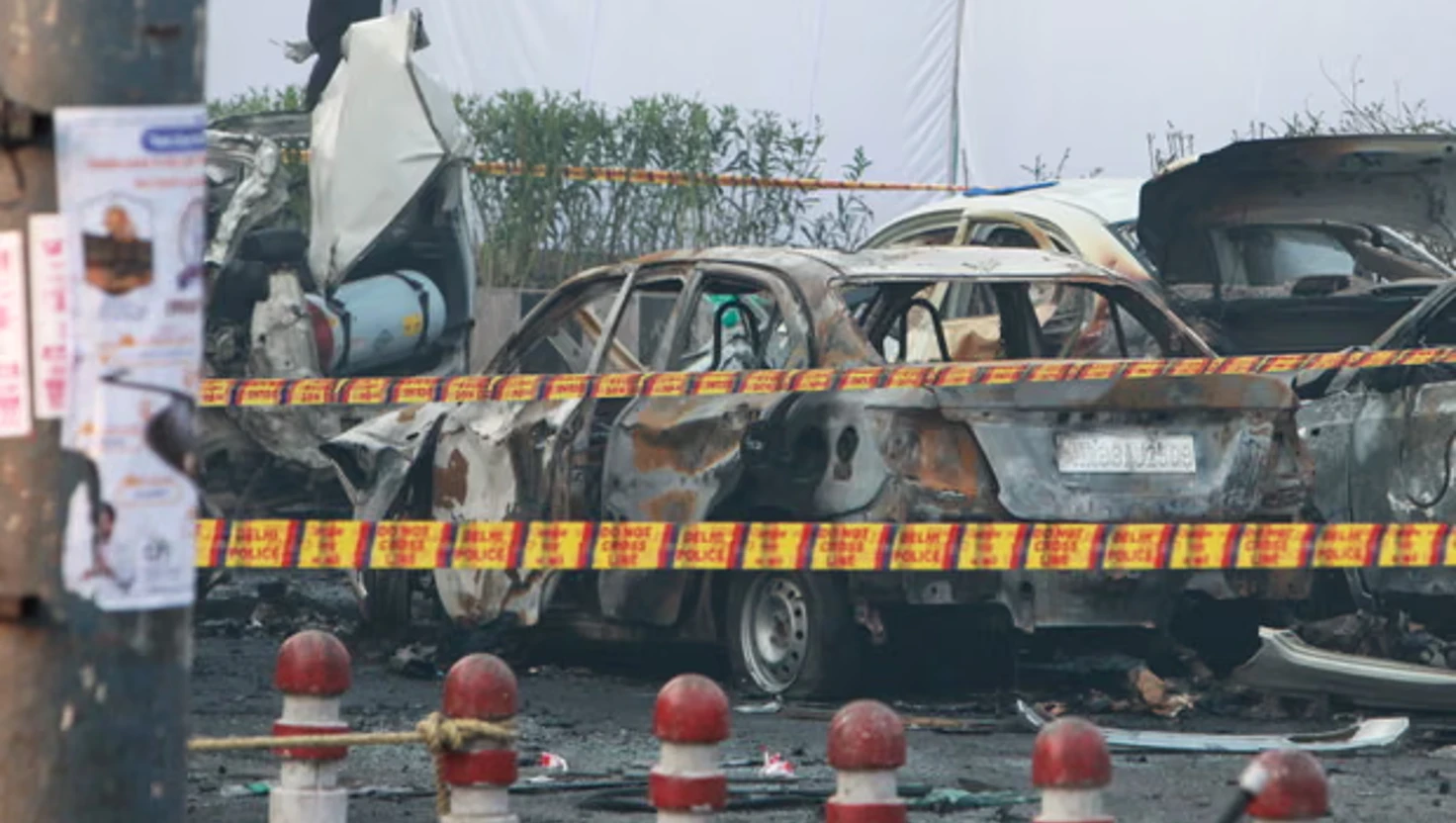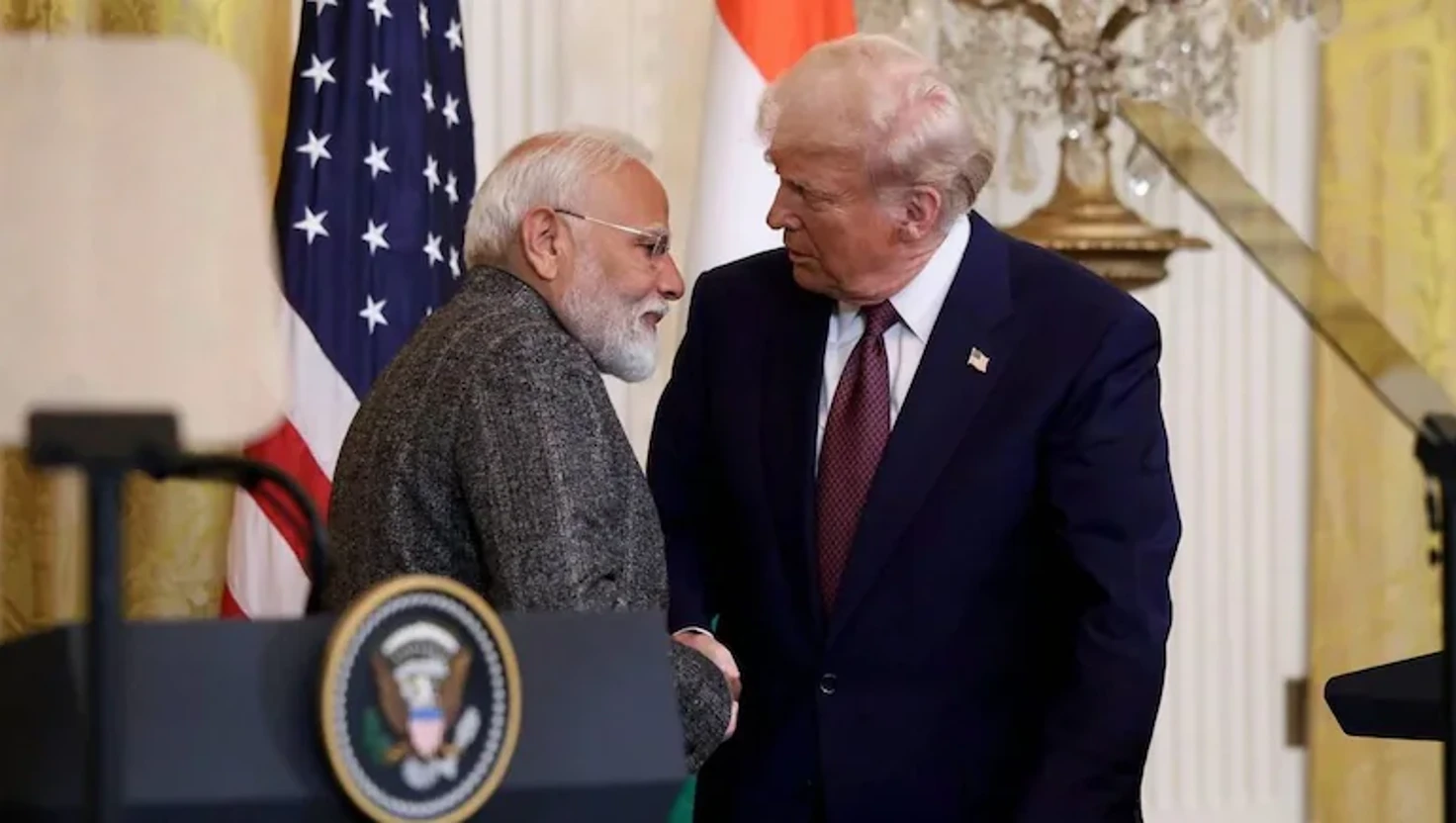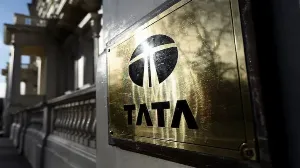India declares Red Fort car blast a terrorist attack

The Indian government has formally classified the recent car explosion near Delhi’s historic Red Fort as a terrorist attack, vowing to bring those responsible to justice and reaffirming its commitment to a policy of zero tolerance towards terrorism.
The decision followed a Union Cabinet meeting chaired by Prime Minister Narendra Modi, held shortly after his return from a visit to Bhutan. The explosion, which occurred on Monday evening, killed at least 12 people and injured several others near the Lal Quila Metro Station.
Cabinet resolution condemns attack
In a statement issued after the meeting, the Cabinet described the blast as a “heinous terrorist incident perpetrated by anti-national forces.” The resolution, read out by Information and Broadcasting Minister Ashwini Vaishnaw, condemned what it termed a “senseless act of violence” and expressed “deep sorrow” over the loss of innocent lives.
“The Cabinet directs that the investigation into the incident be pursued with utmost urgency and professionalism so that the perpetrators, their collaborators and sponsors are identified and brought to justice without delay,” the resolution stated.
The Cabinet observed a two-minute silence in memory of the victims and commended the swift actions of security forces, emergency responders and medical staff who rushed to the scene. “Their dedication and sense of duty are deeply commendable,” Vaishnaw added, noting that the government had received statements of solidarity and support from several countries.
Prime Minister visits injured victims
Prime Minister Modi visited the Lok Nayak Jai Prakash Narayan Hospital soon after returning to New Delhi to meet those injured in the blast. He spoke with medical teams and officials to review the victims’ condition and assured them of all necessary assistance. Later in the day, he chaired a meeting of the Cabinet Committee on Security to review the situation.
The government said it was closely monitoring developments at the highest levels, with investigative agencies ordered to act with urgency and coordination. The Ministry of Home Affairs confirmed that the National Investigation Agency (NIA) had been tasked with leading the probe.
NIA begins probe into suspected terror module
Investigators are examining possible links between the explosion and a suspected militant cell allegedly operating from northern India. According to police sources, several arrests have been made in Delhi, Haryana and Jammu and Kashmir as part of a widening investigation.
At least eight individuals, including three doctors, have reportedly been detained in connection with what authorities describe as a “white-collar” terror module. DNA samples have been collected from relatives of one of the suspects believed to have been driving the car that exploded.
Forensic experts are analysing the remnants of the vehicle, a Hyundai i20, to determine the type of explosive used. Preliminary reports suggest the victims suffered severe upper-body injuries, consistent with the blast wave impact, though no shrapnel was found.
Officials from the Forensic Science Laboratory (FSL) said laboratory tests would confirm the exact nature of the explosive device.
Security tightened across India
In the wake of the attack, major cities across India have been placed on high alert. Security has been intensified at airports, metro stations, and government buildings, with additional patrols deployed at key landmarks.
The Red Fort, one of India’s most prominent historical sites and a UNESCO World Heritage monument, is closely associated with the country’s independence celebrations. The Prime Minister traditionally delivers the Independence Day address from its ramparts each year on 15 August.
Historical echoes and previous attacks
This is not the first time the Red Fort has been linked to a terrorist incident. In 2000, militants attacked an Indian Army camp inside the fort complex, killing three soldiers. The Pakistan-based group Lashkar-e-Taiba claimed responsibility for that assault.
Following that attack, the fort remained under army control for three years before being handed back to the Ministry of Tourism in 2003.
Government reaffirms zero tolerance policy
Concluding the Cabinet statement, Minister Vaishnaw reiterated India’s “unwavering commitment to combating terrorism in all its forms and manifestations.” The resolution, he said, represented the collective resolve of the government and its agencies “to ensure that those behind this heinous act face the full force of law.”
The government also expressed gratitude for the messages of solidarity from foreign governments and international organisations, saying such support underscored the shared global resolve against terrorism.
As the investigation continues, the authorities have urged the public to remain calm but vigilant. The NIA’s findings are expected to determine whether the explosion was part of a broader terror network targeting the national capital.
Context
The Red Fort blast comes at a time when Indian security agencies have intensified operations against militant groups suspected of planning attacks in urban centres. In recent months, several terror cells linked to Pakistan-based organisations have been dismantled in northern India, according to officials.
The incident has reignited debate over urban security and counter-terror preparedness, particularly in heritage and high-density tourist areas. Analysts say the government’s swift classification of the Red Fort explosion as a terrorist act signals its intent to treat the attack as part of a larger national security challenge rather than an isolated criminal incident.

Delhi Blast Investigation Links Detonators to Faridabad Terror Module

US and India Trade Agreement Progresses with Expected Tariff Reductions

Microsoft to Introduce Haptic Feedback for Windows 11 Trackpads

OnePlus 15 Unboxing Ahead of Indian Launch on November 13





